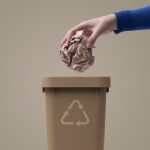 As sustainability and environmental consciousness become more prevalent, recycling has become an essential practice in households and businesses around the world. However, there is often confusion about what items can be recycled and what should be thrown in the trash. In this blog post, we will guide you through the process of determining what is trash and what can be recycled, helping you make more informed decisions to reduce waste and protect the planet.
As sustainability and environmental consciousness become more prevalent, recycling has become an essential practice in households and businesses around the world. However, there is often confusion about what items can be recycled and what should be thrown in the trash. In this blog post, we will guide you through the process of determining what is trash and what can be recycled, helping you make more informed decisions to reduce waste and protect the planet.
Understanding Your Local Recycling Guidelines
The first step in figuring out what can be recycled is to familiarize yourself with your local recycling guidelines. Recycling rules vary from one city or municipality to another, so it’s essential to research and understand the specific guidelines for your area. Check your local government’s website or contact your waste management facility to access detailed information about accepted recyclable items and the proper way to prepare them for recycling.
Inspecting Packaging Labels
One of the easiest ways to determine whether an item can be recycled is by checking its packaging labels. Many products now come with clear markings indicating whether they are recyclable or not. Look for labels such as “recyclable,” “made from recycled materials,” or specific recycling symbols, like the widely recognized chasing arrows symbol. These labels provide valuable information and can help you make informed decisions about whether an item should be recycled or thrown away.
Knowing Commonly Recycled Items
While recycling guidelines can differ, there are some commonly accepted items that can generally be recycled across different locations. These include:
1. Paper and Cardboard: This includes newspapers, magazines, cardboard boxes, cereal boxes, office paper, and paper bags. Remember to remove any plastic tape or other non-recyclable materials before recycling.
2. Plastics: Many plastics are recyclable, but there may be restrictions based on the type of plastic and your local recycling program. Check the resin identification codes on plastic products to determine if they can be recycled. As a general rule, plastics labeled with codes 1 (PET), 2 (HDPE), 4 (LDPE), and 5 (PP) are widely recyclable.
3. Glass: Glass bottles and jars are commonly accepted for recycling. However, glassware, light bulbs, and window panes may not be recyclable due to their different manufacturing processes and chemical compositions.
4. Aluminum and Steel Cans: Beverage cans, food cans, and other aluminum and steel containers are typically recyclable. Rinse them out to remove any residual food or liquid before recycling.
5. Electronics: Many electronics, such as computers, mobile phones, printers, and televisions, contain valuable materials that can be recycled. However, they require specialized recycling processes, so it’s important to check for e-waste recycling programs in your area.
Avoiding Common Non-Recyclable Items
While it’s essential to identify recyclable items, it’s equally important to know what should not be placed in your recycling bin. Some common non-recyclable items include:
1. Plastic Bags: Most recycling programs do not accept plastic bags as they can cause issues in recycling machinery. Instead, consider reusing them or utilizing designated drop-off points for plastic bag recycling.
2. Styrofoam: Expanded polystyrene foam, commonly known as Styrofoam, is generally not recyclable. It is lightweight and difficult to collect and process. Look for alternative packaging materials or check if there are specialized recycling facilities in your area that accept Styrofoam.
3. Food-contaminated Items: Items that are heavily soiled from food, such as greasy pizza boxes, cannot be recycled. Food residue can contaminate other recyclables and hinder the recycling process.
4. Broken Glassware or Ceramics: Broken dishes, glasses, and ceramics cannot be recycled with glass bottles and jars due to their different melting points. These items should be properly bagged and disposed of in the trash.
5. Hazardous Materials: Items like batteries, fluorescent light bulbs, and certain chemicals should not be placed in your regular recycling bin. These require specialized disposal methods to ensure proper handling and prevent harm to the environment.
By understanding what items are not recyclable, you can avoid contaminating the recycling stream and potentially causing damage to recycling facilities.
In Conclusion
Determining what is trash and what can be recycled is a crucial step in reducing waste and promoting sustainability. Start by familiarizing yourself with your local recycling guidelines, inspecting packaging labels, and learning about commonly accepted recyclables. Avoid placing non-recyclable items in your recycling bin, and instead find proper disposal methods for hazardous or specialized materials. By making informed decisions about recycling, you are actively contributing to a healthier and more sustainable future.
